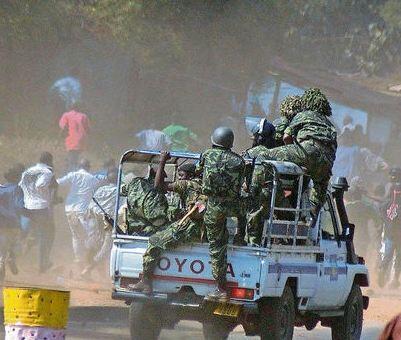
…govt. urged to seek international support to stop killings
Amnesty International has told Malawi to immediately seek help from its neighbours and the international community in order to end albino killings and restore security of people with albinism.

The human rights organisation made the call in a report on attacks against people with albinism.
The report titled “We Are Not Animals to Be Hunted or Sold: violence against people with albinism in Malawi” was released on Tuesday in Lilongwe.
The group says when asked for support, the international community should provide financial and technical support to Malawi to address gaps in investigation and prosecution of perpetrators.
“Seek, as a matter of urgency, international support to conduct investigations, including specialist support for forensic testing and combating human trafficking in order to bring perpetrators of these gross human rights abuses to justice,” the group said in the report.
Amnesty International’s director for Southern Africa Deprose Muchena, who launched the report in Lilongwe, also emphasised the need for international support and questioned Malawi police’s handling of cases of crimes against albinos.
“Police have a duty to protect all people against crime. Failure to investigate effectively crimes against people with albinism promotes a climate of impunity, an environment where horrific killings can continue,” said Muchena.
On his part, president of Association of People with Albinism in Malawi (APAM) Bonface Massa said the report shows the extent to which people with albinism are neglected in the country.
“The report indicates that stigma is not only happening at the society level but also from government and policymakers,” he said.

The report also indicated that the Police are ill-equipped to effectively deal with the attacks on people with albinism not only due to lack of capacity but also because some officers share in the false beliefs that lead to the killing of people with albinism.
Amnesty International compiled the report after conducting field visits in Malawi.
Among other recommendations in the report, the rights group has called on government to provide visible policing in rural area, to cooperate with other police services in Southern Africa to combat cross border trade of body parts, and to amend existing laws to effectively capture the gravity of crimes against people with albinism.
Since November 2014 there has been an increase in attacks against people with albinism in Malawi and at least 18 people have been killed.
During that period, 69 cases involving crimes against people with albinism have been recorded and according to Amnesty, the bloodiest month was April this year when four people were killed.
The attacks in Malawi are fuelled by beliefs and myths which are just false.














